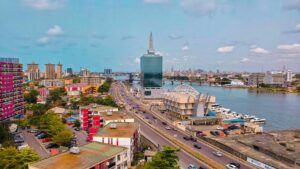Introduction
Nigeria’s position as a key economic hub in West Africa and its abundant opportunities in sectors like oil and gas, telecommunications, construction, and finance continue to attract foreign talent. However, the ability of expatriates to live and work in Nigeria is subject to compliance with immigration laws and policies. This article provides a comprehensive overview of the legal requirements for expatriate work and residency in Nigeria, specifically on the Expatriate Quota system and the Subject to Regularization (STR) visa regime.
The employment and residency of expatriates in Nigeria are regulated by various laws, one of which is the Immigration Act, 2015 which is administered by the Nigeria Immigration Service (NIS), alongside policy directives from the Federal Ministry of Interior. Foreign nationals must secure the appropriate permits before undertaking employment or long-term residence in Nigeria.
Work and Residency Permits in Nigeria
There are several legal routes through which expatriates can obtain permission to work and reside in Nigeria. Residency permits allow expatriates to remain in Nigeria lawfully and may be issued independently or alongside work permits. These permits come in various forms, including the Subject to Regularization (STR) visa, Temporary Residence Permit (TRP), and Permanent Residence Permit.
A.) Expatriate Quota (EQ)
The Expatriate Quota (EQ) is a government authorization granted to Nigerian companies which allows them to employ a specified number of foreign workers in particular roles where local expertise may be unavailable. This system ensures that expatriate employment is aligned with the country’s broader economic and development goals by promoting local employment while providing opportunities for foreign expertise in specialized sectors. The EQ approval is issued to companies upon the justification of the necessity of foreign expertise for the role in question. The application process involves the submission of documents supporting this claim, such as industry-specific qualifications and evidence of recruitment efforts to hire locally. The number of expatriate positions granted under the quota system varies based on factors such as the company’s size, the sector in which it operates, and its economic contribution. These allocations are designed to strike a balance between fostering local talent and filling critical gaps in knowledge and skills.
B.) Temporary Work Permit (TWP)
The Temporary Work Permit is designed for expatriates invited to Nigeria for short-term, specialized assignments such as technical installations, equipment maintenance, audits, or training programs. It serves as a flexible option for companies needing foreign expertise on a project-by-project basis without long-term commitments. Typically, the TWP is issued for an initial period of 90 days and may be extended once, allowing a maximum stay of 180 days in total. However, it is non-renewable beyond this duration, and a different type of permit must be pursued for continued stay or employment. Importantly, the application must be sponsored by a Nigerian entity, which is required to initiate and justify the need for the expatriate’s temporary engagement. The TWP is processed through the Nigerian Immigration Service, often requiring supporting documents such as an invitation letter, job description, and evidence of the company’s legal status in Nigeria.
C.) Dependent Pass
The Dependent Pass is granted to the family members of expatriates legally residing in Nigeria, allowing them to live in the country during the expatriate’s stay. This pass is specifically designed for spouses and dependents, providing them with the right to remain in Nigeria but not to engage in employment. The validity of the Dependent Pass is directly tied to the duration of the principal expatriate’s permit, ensuring that family members’ stay is in sync with the expatriate’s legal residence and employment status. While it grants residency rights, the pass does not extend to employment privileges, meaning holders must seek separate authorization if they wish to work in Nigeria.
D.) Subject to Regularization (STR) Visa
The Subject to Regularization (STR) visa is a crucial entry permit issued to expatriates intending to engage in long-term employment in Nigeria. It must be obtained from a Nigerian diplomatic mission abroad before the individual arrives in the country. This visa serves as the first step in the legal process for expatriates to formalize their stay and work status. Upon arrival in Nigeria, the expatriate’s employer is required to initiate the regularization process by applying for the Combined Expatriate Residence Permit and Aliens Card (CERPAC), which confirms both residency and work authorization. It facilitates lawful entry and also forms the foundation for transitioning into full legal residency and employment within Nigeria.
E.) Temporary Residence Permit (TRP)
The TRP is designed for foreign nationals who intend to reside in Nigeria without engaging in employment. It is commonly issued to retirees, volunteers, or spouses of expatriates who are not seeking to work. The permit is typically valid for one year and may be renewed annually upon meeting the necessary requirements.
F.) Permanent Residence Permit
The Permanent Residence Permit is designed for expatriates who have established deep, long-standing connections to Nigeria, either through marriage to Nigerian citizens, sustained residency, or substantial economic contributions to the country. This permit is typically granted to individuals who have lived in Nigeria for a minimum of 15 years or who meet certain high-value investment criteria set by the government. While the permit grants the holder the right to reside indefinitely in Nigeria, it does not automatically confer the right to work or Nigerian citizenship.
Process for employing Expatriates in Nigeria
- Expatriate Quota Approval
Before an expatriate can begin work, their Nigerian employer must obtain Expatriate Quota Approval from the Ministry of Interior. This document specifies the number and job titles of expatriates the company is permitted to employ. - STR Visa Application and Entry
With the quota approved, the expatriate applies for an STR visa at a Nigerian embassy or consulate. Upon successful processing, they may enter Nigeria to finalize their legal status. - CERPAC Application
A Core Compliance Requirement to legally live and work in Nigeria, most expatriates are required to obtain the Combined Expatriate Residence Permit and Aliens Card (CERPAC). This is a critical document that confirms both work and residency authorization. After arriving in Nigeria, the expatriate must apply for a CERPAC to formalize their employment and residency.
CERPAC Application Requirements Include:
- Valid international passport (minimum 6 months validity, with at least two blank pages)
- Completed CERPAC statutory form
- Offer and acceptance letters of employment
- Passport photographs
- Expatriate Quota Approval letter
- Academic and professional certificates
- Proof of registration with relevant professional bodies
- Visa acknowledgment and payment receipts
- Evidence of sufficient financial means
The procedure for CERPAC application is that the employer submits a formal application requesting the regularization of the expatriate’s stay. upon approval, the NIS issues the CERPAC card, valid for up to two years and renewable upon expiry.
In addition to securing the CERPAC, both employers and expatriates must adhere to key compliance obligations. The employing company must be duly incorporated in Nigeria and maintain good standing with relevant regulatory bodies. Expatriates holding CERPAC are also expected to comply with their tax obligations in accordance with Nigerian law.
 Employers and expatriates are advised to strictly follow all procedural and legal obligations. Non-compliance such as working without proper authorization or overstaying permit durations can lead to fines, sanctions, deportation and blacklisting from future applications. The Nigeria Immigration Service also conducts routine audits and inspections to enforce compliance.
Employers and expatriates are advised to strictly follow all procedural and legal obligations. Non-compliance such as working without proper authorization or overstaying permit durations can lead to fines, sanctions, deportation and blacklisting from future applications. The Nigeria Immigration Service also conducts routine audits and inspections to enforce compliance.
Conclusion
Understanding Nigeria’s expatriate work and residency permit regime is essential for lawful participation in the country’s labour market. From securing Expatriate Quota Approvals to processing STR visas and obtaining CERPAC, compliance with immigration laws protects both the expatriate and the employer from legal and operational risks. Seeking legal guidance and staying up-to-date with regulatory changes ensures a smoother experience for all parties involved in the cross-border employment process.
